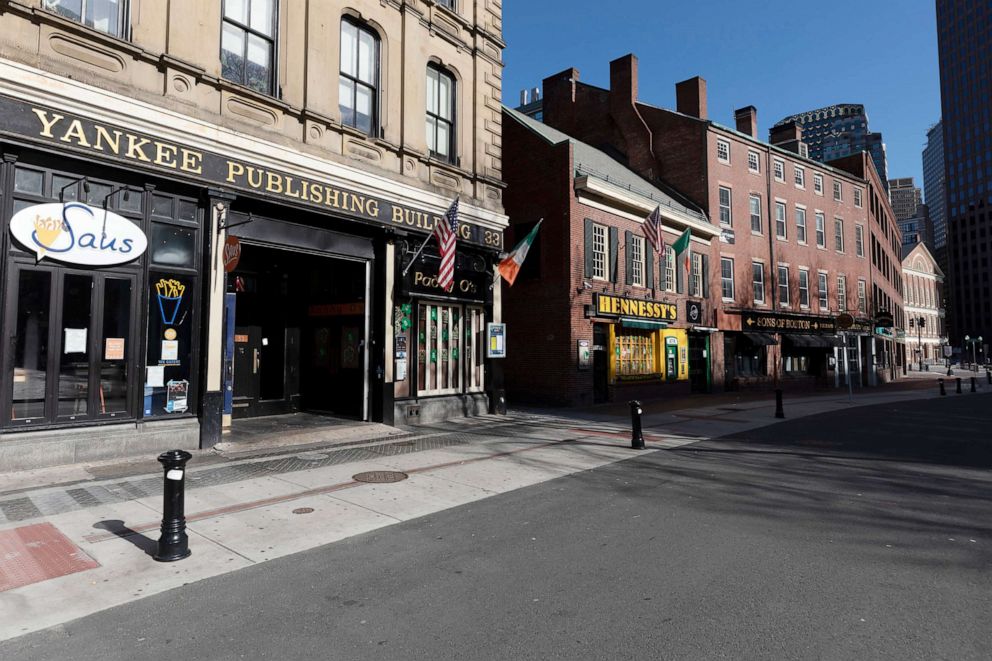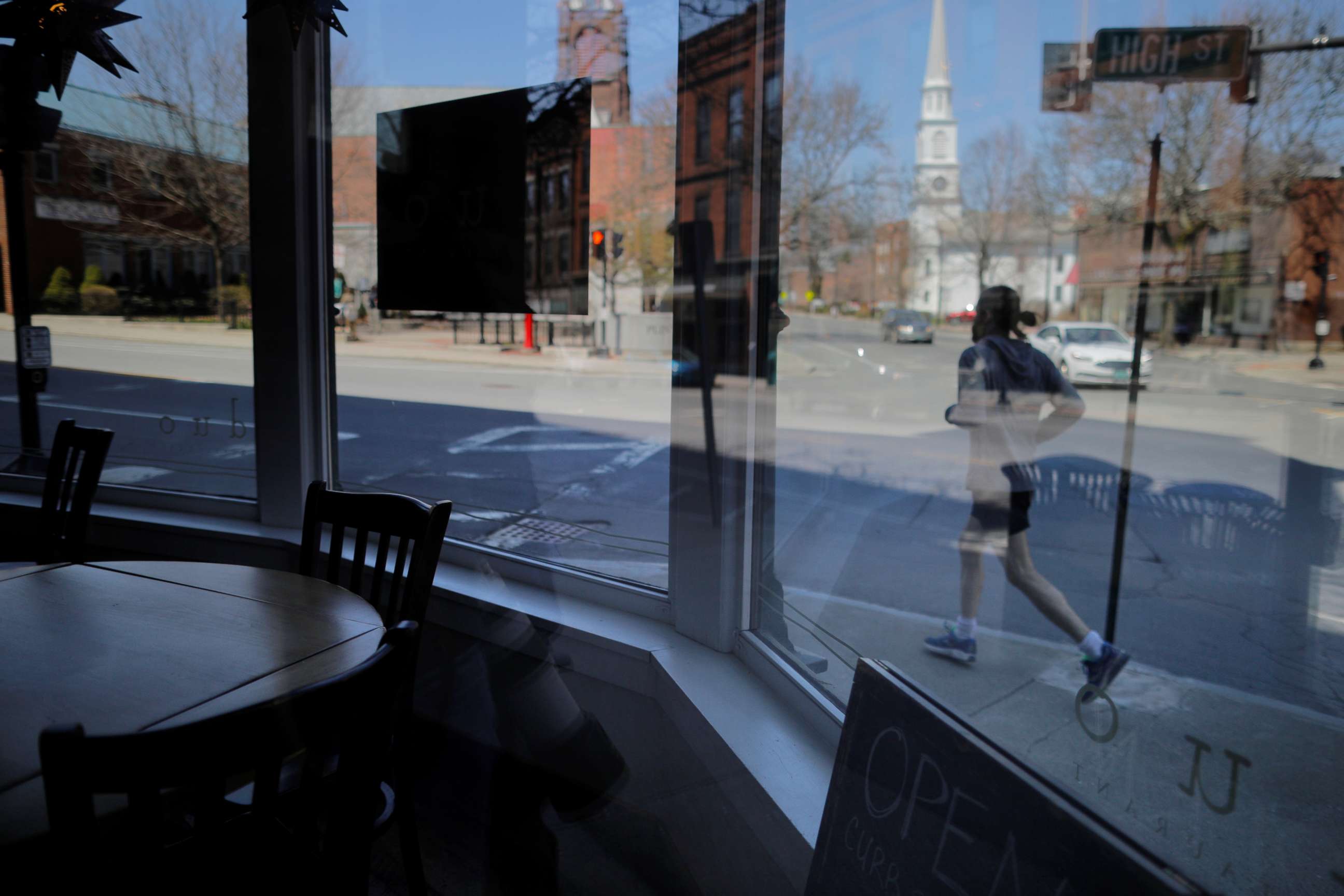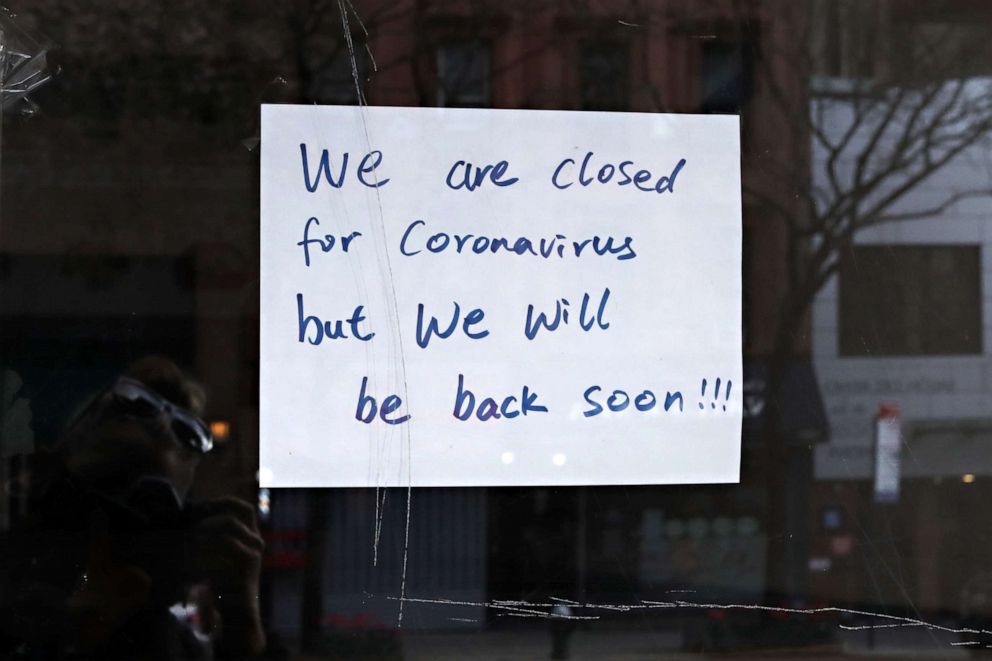Jose Andres among restaurateurs pushing Congress for $120 billion lifeline
"We are fighting to give restaurants a fighting chance," Andres says.
World famous restaurateur and philanthropist Jose Andres is among a group of independent restaurant owners pleading with Congress to create a $120 billion stabilization fund to keep restaurants afloat through the coronavirus pandemic and spiraling economic crisis.
"I don't think we realize how restaurants are the backbone of many communities all across America," Andres said in a Zoom news conference Wednesday.
Andres estimated that members of the Independent Restaurant Coalition (IRC), formed to save local restaurants affected by COVID-19, contribute more than $1 trillion to the economy.
"We are fighting to give restaurants a fighting chance," he said.
IRC co-founder Naomi Pomeroy, owner of Portland-based Beast and Expatriate, has had to lay off the entire staff of her James Beard Award-winning restaurant. Although she secured a small business loan through the federal Paycheck Protection Program, she said she's worried that she may not be able to repay it even with a low 1% interest rate.
"It's not enough. Loans are not the answer," Pomeroy said, pointing to a longer-term need. "We need the stabilization fund. It's a small price to pay. Until we have a vaccine (against the coronavirus), this is going to be a long-term problem, and we need a long-term fix."
In a letter to bipartisan leadership in Congress, the IRC requested that the fund operate through the end of the year with grant amounts based on the level of need per business, and that the fund be targeted only to independent restaurants, not big chains or publicly-traded companies.

The group is also asking that a portion of the fund be set aside for women and minority owners.
"We need Congress to act or we will not be able to survive," the letter reads. "Small restaurants are scrappy and entrepreneurial; we run on thin margins and optimism. We are the places you meet your constituents, we are the places that donate to schools, we are the places feeding our frontline workers today. If these requirements are not met, our country will not only permanently lose 11 million jobs, but also these vital cornerstones of our communities."
Last month restaurant workers made up 60% of the unemployed in the U.S., according to estimates. All told, the industry normally employs some 11 million people -- up to 55 million when indirect employees ranging from fishermen to beekeepers are included.
"The losses that our industry has incurred have wiped out all of the gains of the last two years," said IRC founding member Andrew Zimmern, a James Beard award-winning chef and host of "What's Eating America" and "Bizarre Foods."
Zimmern said it would be "a huge financial tragedy" if scores of restaurants vanished, saying his industry is the number-one employer of young people entering the workforce, as well as a top employer of single mothers, newly-arrived immigrants, and those leaving prison for the first time.
Federal rescue programs -- specifically the Paycheck Protection Program with its forgivable loans designed to keep employees on payroll for two months -- just aren't built for the unique restaurant business model, the IRC says.

Many restaurateurs say they have no idea when they'll be able to reopen or how they will operate with a vastly-reduced customer base due to social distancing. Andres and many other owners say they expect about a 50% reduction in customers for an undetermined period of time, which could be devastating to an industry that tends to operate on a very low profit margin. And when restaurants do reopen, staff will first have to be trained in virus mitigation.
Advocates say the numbers are staggering, and for many the outlook is bleak.
"Things like the PPP, my husband and I looked into that," said Nina Compton, New Orleans-based owner of James Beard award-winning Compère Lapin and Bywater Bistro. "It doesn't work for us. The origin of the loan -- eight weeks with all the staff back on payroll?" She said she and her husband had done the math for various scenarios and were genuinely fearful as they faced cutting back one of their restaurant's capacity from 72 seats to around 35.
"To turn a profit in a restaurant is very difficult, and with those margins, with less volume, sales being down, my husband and I have run the numbers a thousand times, and it's daunting," said Compton, who also wondered aloud how she would pay for insurance for workers and if she would have to cut menu prices in hard-hit New Orleans. "I know a lot of people are asking 'Can I reopen?' Do they take on a loan they can't pay back? Will it be worth everything required before they can reopen?"
In a recent survey by the National Bureau of Economic Research, restaurant owners said they had just a 30% chance of survival in a three-month crisis -- in this case, lasting through mid-June -- and only a 15% chance if it continued into six months.

The new IRC coalition, created in the wake of the pandemic, includes celebrity chef Tom Colicchio, co-founder of Gramercy Tavern in New York City, and Chef Kwame Onwuachi, owner of Afro-Caribbean restaurant Kith/Kin in Washington, D.C.
Andres has been trying to create opportunities and boost revenues for his fellow restaurant operators through his non-profit World Central Kitchen, which normally helps feed the needy during natural disasters. And just this week, California Gov. Gavin Newsom announced that he is creating a state-financed meal delivery program -- hiring restaurants to feed the vulnerable elderly population in his state.
But Pomeroy said these measures, while worthwhile, are only temporary and not nearly enough.
Rosa Garcia, owner of Mott Haven Bar and Grill in the Bronx borough of New York City, was recently able to rehire five staffers by collaborating with World Central Kitchen. But she says she's desperately awaiting approval for a PPP loan after being denied in the first round of funding.
"If we aren't able to get this fund," Garcia said of the proposed IRC stabilization fund, "I don't think we'll be able to survive."
What to know about the coronavirus:
- How it started and how to protect yourself: Coronavirus explained
- What to do if you have symptoms: Coronavirus symptoms
- Tracking the spread in the U.S. and worldwide: Coronavirus map
Tune into ABC at 1 p.m. ET and ABC News Live at 4 p.m. ET every weekday for special coverage of the novel coronavirus with the full ABC News team, including the latest news, context and analysis.







